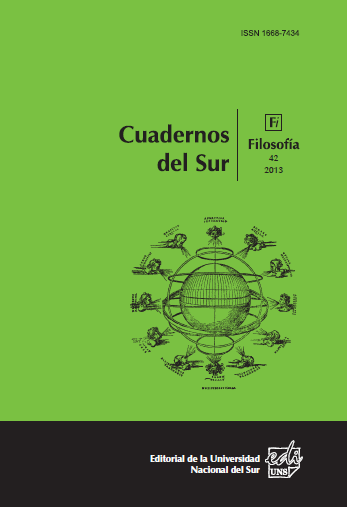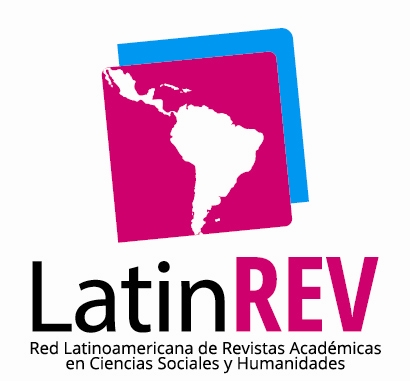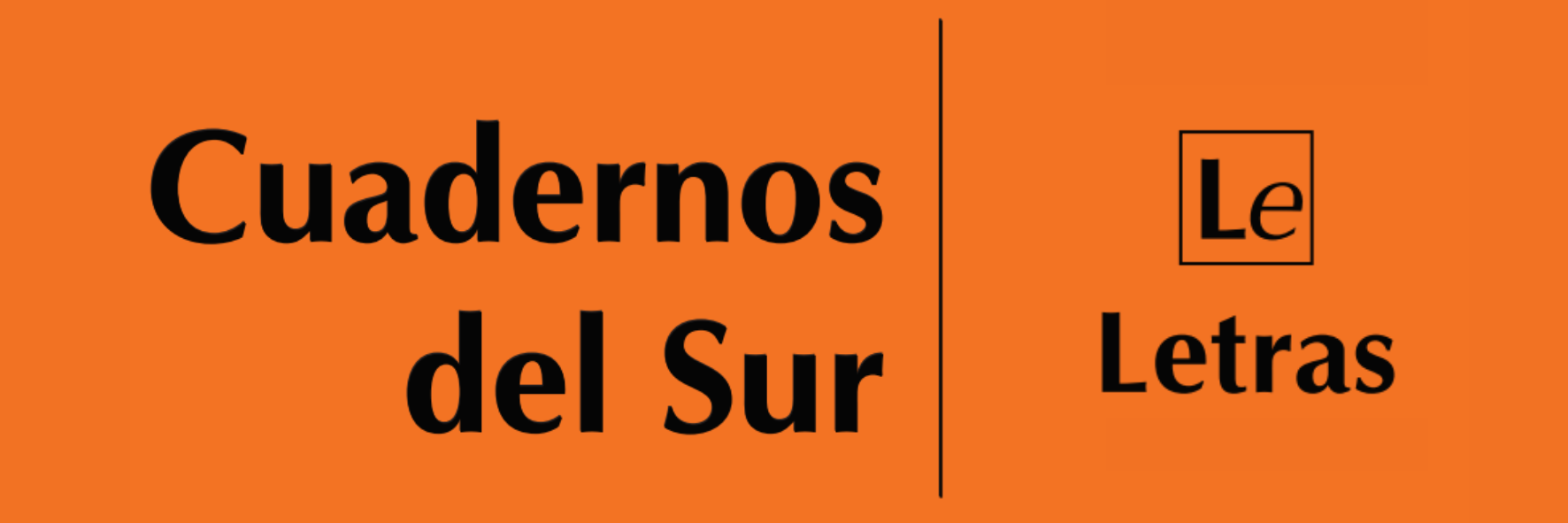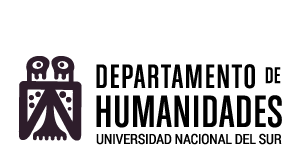Debates sobre ciudadanía y ambiente
Keywords:
Environment, Citizenship, Ecological ethicsAbstract
Since the late twentieth century the question of human impact on the environment is of scientific, political and philosophical interest; in that sense it is worth to discuss the interrelation between the environment and the exercise of citizenship. Different approaches arise from the principles of political philosophy that offer different points of view of man’s relationship with nature. The anthropocentric radical positions consider the individual as all that matters, and the nature, but also that the communities, cultures and human institutions are merely an instrumental value. More environmentalists believe that human preferences should be based on a whole assumed conception of the world. Among environmentalists approaches we focus this work on the study of eco-philosophies concern with ecological citizenship, good living and political ecology. The essential components of each one of them bring us to a new way of thinking, which tries to overcome the defi ciencies of modern thought that dominated the Western wordld since the sixteenth century, characterized by the voluntarist individualism, the validation of scientific reason, and the predominance of governmental institutions and the market, as constituents of man and society. The eco philosophies that were analyzed call into question the project of modernity, providing alternatives to integrate the exercise of citizenship, with a global, multicultural and coherent approach to the link between man and nature, aimed at an ecological conscience.
Downloads
References
Alimonda, Héctor (2005), “Paisajes del volcán de Agua (aproximaciones a la ecología política latinoamericana)”, en Parreira, Clelia y Alimonda, Héctor (org.), Políticas Públicas Ambientales Latino-Americanas, Brasilia, FLACSO - Sede Brasil: ABARE, pp. 65-80.
----- (2011), “La colionidad de la naturaleza. Una aproximación a la ecología política latinoamericana”, en La naturaleza colonizada. Ecología política y minería en América Latina, Buenos Aires, CLACSO, pp. 21-58.
Bellver Capella, Vicente (2000), “Las ecofilosofías”, en Ballesteros, Jesús y Pérez Adán, José (eds.), Sociedad y Medio ambiente, Madrid, Editorial Trotta, pp. 251-269.
Boff, Leonardo (2008), Críticos, creativos, cuidantes, Textos Breves, Buenos Aires, Editorial Nueva Tierra.
Bolivar Echeverría, Emanuel (2010), “La Crisis civilizatoria”, Estudios Ecológicos, n° 6, pp. 3-10.
Dávalos, Pablo (2008), “Reflexiones sobre el SumakKawsay (el buen vivir) y las teorías del desarrollo”, ALAI. América Latina en movimiento, [Disponible en: http://alainet.org/active/25617&lang=es]
De Sousa, Boaventura (2001), “Los nuevos movimientos sociales”, OSAL, n° 5, pp. 177-183.
Dobson, Andrew (2005), “Ciudadanía Ecológica”, Isegoria, n° 32, pp. 47-62, España, [Dsponible en: http://isegoria.revistas.csic.es/index.php/isegoria/article/view/ 437/438 consulta 13/02/14].
Escobar, Arturo (2011), “Ecología política de la globalidad y la diferencia”, en
Alimonda, Héctor (coord.), La Naturaleza Colonizada, Buenos Aires, CLACSO, pp. 61-91.
Funtowicz, Silvio, Martinez-Alier, Joan, Munda, Giuseppe, & Ravetz, Jerome (1999), Information tools for environmental policy under conditions of complexity, Copenhagen, Office for official publications of the European communities
Funtowicz, Silvio y Ravetz, Jerome (1997), Problemas ambientales, ciencia post-normal y comunidades de evaluadores extendidas, Londres, Ciencia y Tecnolgía.
----- (1993), “The emergence of post-normal science”, en Von Schomberg, René (ed.), Science, Politics and Morality, Netherlands, Springer, pp. 85-123.
Georgescu-Roegen, Nicholas (1971), The entropy law and the economic process, Cambridge, Harvard University Press.
Habermas, Jürgen. (1962), Strukturwandel der Öffentlichkeit. Untersuchungen zu einer Kategorie der bürgerlchen Gesellschaft. Neuwied, Lchterhand, [trad. Esp. Historia y crítica de la Opinión Pública, Gustavo Gli, Barcelona, 1981].
----- (1968), Ciencia y Técnica como ideología, Madrid, Tecnos, [Technk und Wissenschaft als ‘Ideologie’].
----- (1973), Problemas de legitimación en el capitalismo tardío, Buenos Aires, Amrroutu, [Legitimatiosprobleme im Spätkaptalismus, 1975].
----- (1985) Dei neueUnübersichtlinchkeit, Suhrkamp, Frankfurt, [en Ensayos políticos. Península, Barcelona, 1988, pp. 11-134].
----- (1991) Teoría de la Acción comunicativa: complementos y estudios previos, Cátedra, Madrid.
Jones, Aura (2001), Hacia una mejor compresión de la responsabilidad social corporativa, [Disponible en: http://www.iadb.org/ética, consulta 16/07/13].
Jones, Ronald (2011), “The Post-Critical Hybrid”, Artnodes, nº11, [Disponible en: http://artnodes.uoc.edu/index.php/artnodes/article/view/artnodes-n11-jones/artnodes-n11-jones-esp]
Junges, José Roque (2004), Ética ambiental, Sao Leopoldo, Editora UNISINOS.
Kant, Immanuel (1988), Lecciones de ética, Barcelona, Crítica.
Küng, Hans (1993), Credo, New York, Doubleday.
Martínez Palacio, Jone y Barcena Hinojal, Iñaki (2012), “Conflictos socio-ambientales, democracia y ciudadanía ecológica. Un análisis comparado entre las Comunidades Autónomas de Cataluña y el País Vasco”, Revista Española de Ciencia Política, nº 28, pp. 31-54.
Offe, Claus (1985) “New Social Movements: ChallengingtheBoundaries of Institucional Politics”, Social Reserch, 52/4, pp. 817-869, [en Partidos Políticos y Nuevos Movimientos Sociales, Madrid, Sistema, 1992].
----- (1987) “The Utopia of Zero-option, Modernity and Modernization as normative political creteria”, Praxis International, nº7.1, pp. 1-25.
Pengue, Walter (2001), “Expansión de la soja en Argentina Globalización, Desarrollo Agropecuario e Ingeniería Genética: Un modelo para armar”, Biodiversidad, nº 29.
Pengue, Walter y Morello, Jorge (2000), Cultivos transgénicos: hacia dónde vamos?: algunos efectos sobre el ambiente, la sociedad y la economía de la nueva recombinación tecnológica, Buenos Aires, Lugar Editorial.
Potter, Van Rensselaer (1971), Bioethics. Bridge to the future, Nueva Jersey, Prentice Hall.
----- (1988), Global Bioethics. Building on the Leopold legacy, Michigan, Michigan State University Press.
Quijano, Anibal (2014), Cuestiones y horizontes: de la dependencia histórico-estructural a la colonialidad/descolonialidad del poder, Buenos Aires, CLACSO.
Serrano Moreno, José Luis (2000), “Principios filosóficos de la gestión ambiental”, en Ballesteros, Jesús y Pérez Adán, José (eds.), Sociedad y Medio ambiente, Madrid, Editorial Trotta, pp. 323-336.
Sosa, Nicolás (2000), “Ética ecológica y movimientos sociales”, en Ballesteros, Jesús y Pérez Adán, José (eds.), Sociedad y Medio ambiente, Madrid, Editorial Trotta, pp. 271-299.
Tortosa, José María (2011), “Sumak kawsay, suma qamaña, buen vivir”, Aportes Andinos, nº 28, p. 3.
Vives Rego, Josep (2013), “El Ciudadano Ecológico: Reflexiones sobre algunos Contextos Sociales y Elementos Cosmovisionales”, Sociología y tecnociencia. Revista digital del Sistema Tecnocientífico, nº 3, vol. 1.
Downloads
How to Cite
Issue
Section
License
Copyright (c) 2013 María Belén Verón Ponce, Patricia Irma Breppe, Marta Vigo

This work is licensed under a Creative Commons Attribution-NonCommercial 4.0 International License.
Aquellos autores/as que tengan publicaciones con esta revista, aceptan los términos siguientes:- Los autores/as conservarán sus derechos de autor y garantizarán a la revista el derecho de primera publicación de su obra, el cuál estará simultáneamente sujeto a la licencia Atribución-No Comercial 4.0 Internacional CC BY-NC 4.0.
- Los autores/as podrán adoptar otros acuerdos de licencia no exclusiva de distribución de la versión de la obra publicada (p. ej.: depositarla en un archivo telemático institucional o publicarla en un volumen monográfico) siempre que se indique la publicación inicial en esta revista.
- Se permite y recomienda a los autores/as difundir su obra a través de Internet (p. ej.: en archivos telemáticos institucionales o en su página web) una vez publicado su trabajo, lo cual puede producir intercambios interesantes y aumentar las citas de la obra publicada. (Véase El efecto del acceso abierto).










